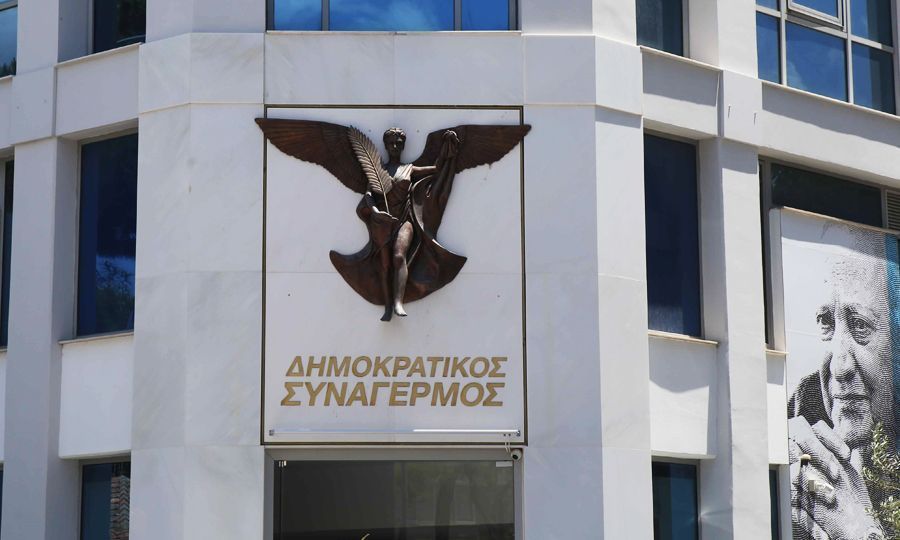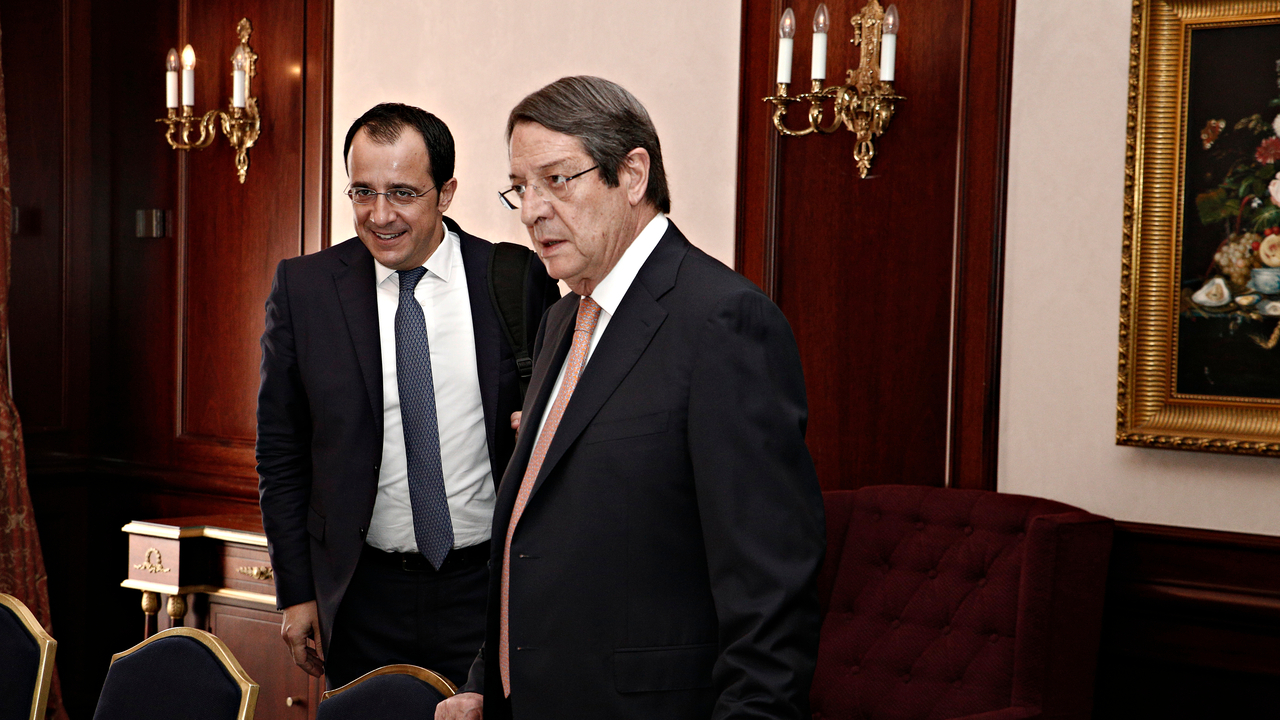The ideological vacuum, and consequently the lack of a compelling narrative from the liberal centre-right, has fuelled the rise of the far-right and other anti-systemic formations across Europe, a phenomenon that has been increasing in Cyprus in the last years. Why do parties like DISY, DIKO, DIPA, and center-right governments like those of Anastasiades and Christodoulides seem now uninspiring, leaving a huge gap that other forces are trying to fill?

The Voice
When the moderate conservatists fall silent, the far-right grabs the microphone. Following the last European elections (June 2024), in both the EU and Cyprus, the following is particularly evident: extremism now appears to have a stable, albeit simplistic, footprint that attracts the masses, while traditional liberal and centrist parties seem to move without a vision and unable to address serious problems. Some may argue this all started in the US, and perhaps they are right; but for now, let’s stay focused on our neighbourhood.
In France, Marine Le Pen’s far-right party, Rassemblement National (RN), dominated the European elections, although it narrowly lost the subsequent parliamentary elections due to a coalition of democratic parties.
In Germany, CDU/CSU, the traditional conservative parties of Adenauer, Kohl, and Merkel managed to stay in power, but the far-right AfD (Alternative für Deutschland), a nationalist-populist party, has grown exponentially, closely trailing in polls. This rise complicates the actions of Germany’s traditional conservative right.
In Italy, Meloni’s Fratelli d’Italia secured dominance both nationally and in the EU election (28.8%), overshadowing the traditional centre-right. Meloni continues to strengthen her position and is considered a close interlocutor of US President Donald Trump.
In Cyprus, ELAM entered Parliament in 2016 as a branch of Greece’s criminal organisation, Golden Dawn, with 3.71%. In 2021, it gain momentum, reaching 6%, with current polls suggesting up to 15% or more. The decline of the centre-right in Cyprus seems to give rise to new parties like ALMA, with high support levels.
The ideological vacuum: The moderate right has traditionally based itself on three pillars: fiscal responsibility, social policies, and a pro-European stance. Since the 2008 economic crisis and especially after 2015 (migration, security, inequalities), this package ceased to resonate with the politically and economically insecure middle classes. Think tanks like Chatham House and Carnegie have long warned that the gap will be filled by parties with emotionally charged, anti- migrant narratives. Fear seems much easier than hope or a future vision. Economists recognise migration can have positive effects, but convincing the masses that migrants are not a threat to jobs and security is difficult.
Meanwhile, messages advocating that an increase in migration could significantly grow the GDP are more convincing to business owners than ordinary citizens. The inability to address social inequalities fuels the perception that the state is controlled by a wealthy elite, fostering widespread corruption and distrust. Most recent European governments failed to equitably share wealth, worsening social disparities.
Cyprus in the past decade exemplifies growing inequalities, further fuelling the narrative of the far-right, which is gradually stepping into the role of the champion of the poor, traditionally claimed by the left. At the same time, the country’s billionaires increase – locals and foreigners – while thousands of young people earn near-minimum wages (~€1000/month) and cannot afford housing due to rising costs. Nearly 50% of Cypriots report struggling monthly, signalling a shrinking middle class and declining moderate households, traditionally the backbone of democracy in Europe.
The right-wing governments of Anastasiades and Christodoulides failed to solve even basic issues like water supply and electricity, leading to energy shortages and water crises. Experts predict these problems will worsen leading into 2026-2028, elections that may see deterioration rather than recovery.

The trap
Many centre-right parties, under pressure from far-right and anti-system forces, have hardened their rhetoric on migration and security, hoping to regain lost voters. Often, this backfired, they normalized extremism by adopting it, making authentic far-right messaging even more attractive. Polls confirm a cycle of mainstreaming radical stances.
What is authentic in this context? Is nationalism and anti-migration rhetoric solution? Can ELAM’s nationalism in Cyprus resolve the issues mentioned above? Or could it lead Cyprus into new conflicts similar to those of 1963 and 1974?
Instead of DISY, DIKO, and the Christodoulides government addressing the root causes of far-right extremism and solving the underlying problems, they attempt to compete with it, much like a drowning person grabbing at straws. The President appears more "authentic" by delving into nationalism, tying back to the 1956 British colonial proclamation about EOKA’s leader Grivas. Annita Demetriou rushes to lay a wreath at Grivas’ memorial, further fuelling the discourse.
Recent debates about a Cyprus hero Gregoris Afxentiou, failed to capture his heroism; instead, they highlighted the lack of a clear, constructive proposal from the liberal right. It shows why figures like MEP Fidias or former Auditor-General Odysseas Michaelides find resonance among the masses. They operate in the empty space created by the liberal right’s avoidance of complex, genuine solutions. Instead, they move into the simplistic narratives appealing to fears and identity rather than addressing complex issues.

The politics of a clear, honest proposal: Far-right extremism offers three straightforward messages: "security," "control," and "identity." Centre-right parties, however, often respond with technical metrics – fiscal figures, security protocols, or superficial policy adjustments. Countries where the political centre failed to deliver a convincing social contract, such as fair climate and energy transitions, social stability, and anti-discrimination measures, have lost ground to the extremists.
Conversely, as Le Monde pointed out, when political coalitions took a clear anti-extremist stance and presented principled policies, as seen in France in 2024, the momentum against extremism was halted.
What would be a “solid narrative” today? Some proposals include:
1. Social Contract for the Middle Class: tax relief, re-education, housing, and energy support.
2. Security with Rule of Law: border control, legal pathways, swift asylum procedures, strict measures against traffickers, and integration policies.
3. Fair Climate Transition: compensation for vulnerable groups, local green industries, not just car subsidies.
4. "Made in Europe" Industrial Policy: strategic investments in energy, defence, electronics with employment guarantees.
5. European Sovereignty without Elitism: communicating tangible benefits in cities and sectors.
6. Political Renewal: decentralization, more participation spaces, engaging middle generations, empowering local leaders as narrative carriers.
Focus wanted
Numerous challenges demand urgent action in Europe and its member-states. Failure to do so risks reverting to the Age of Extremes, as Eric Hobsbawm described in his book, reminiscent of the tragic history of the 20th century. The 21st century cannot be another bloody era nor a breeding ground for dictatorships.
The far-right gains when opponents fail to deliver a clear story of security and opportunity within the Europe of 2025. When the centre speaks simply, fairly, with a plan, and builds principled alliances, it can mitigate extremist momentum. In Cyprus, rational, straightforward politics must return in the upcoming elections.
The liberal narrative should focus on real issues: resolving the Cyprus problem, economic growth with social justice, environmental action, and supporting youth to stay in their homeland. These problems cannot be solved as political things continue the extreme right way. The liberal right cannot survive if it sticks to figures so the traditional right wing, DISY and the so-called political centre DIPA and DIKO need to revisit their vision. Ideas must lead, then political figures. A clear, viable, and honest story is the urgent need for Cyprus' future.
